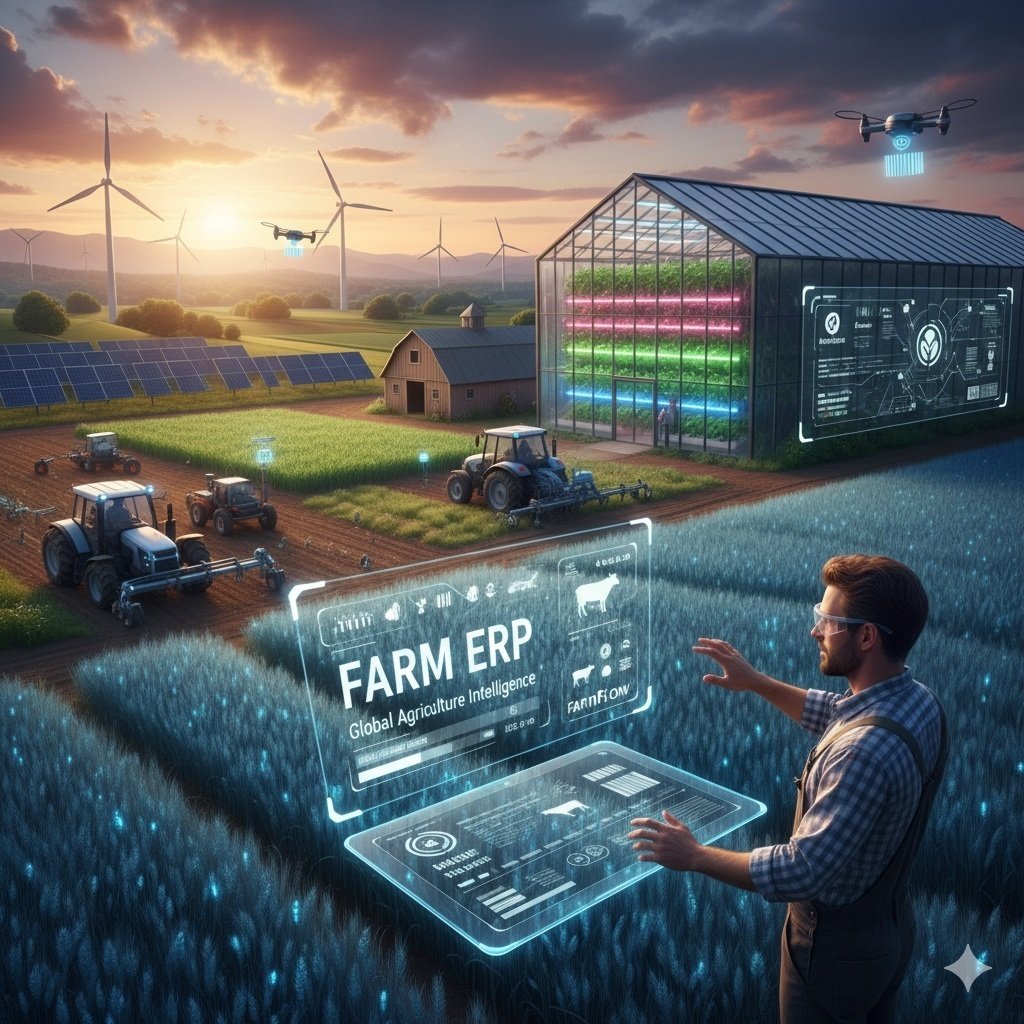The Farm ERP market is rapidly gaining traction as agriculture operators shift from manual and fragmented farm management systems to centralized, data-driven farm operations. ERP platforms for agriculture increase productivity, strengthen planning, reduce operational leakages, and improve traceability from field to fork, supporting digital transformation across farms, cooperatives, agribusinesses, and food value chains.
According to BIS Research, the global farm ERP market is projected to reach $3,953.1 million by 2035 from $1,178.8 million in 2024, growing at a CAGR of 11.95% during the forecast period 2025–2035.
What Key Drivers Are Impacting Adoption in the Farm ERP Ecosystem?
Rising demand for farm-centric analytics and productivity optimization – modern farms require analytics, yield forecasting, operational intelligence, and loss reduction.
Expansion of large commercial farms and agribusinesses using centralized data control, multi-location coordination, and farm workforce automation.
Government incentives and smart agriculture initiatives accelerating the adoption of digital farming, smart irrigation, and real-time monitoring.
Rapid adoption of IoT, UAVs, GNSS, and telematics integration in agriculture leading to more accurate decision-making.
What Opportunities and Challenges Exist in the Global Farm ERP Market?
Opportunities
Farm ERP enables digital unification of crop planning, production, input purchasing, logistics, inventory, certification, traceability, and sales operations. The rise of regenerative agriculture, carbon monitoring, and sustainability audits increases demand for ERP modules that track soil health, chemical use, water footprint, and emission intensity. Ag-food manufacturers and processors are also integrating ERP to ensure compliance and contract-farming transparency.
Challenges
High initial investment, low digital skill levels among farmers, resistance to software adoption in developing economies, and limited rural connectivity can delay market penetration. In addition, lack of standardization for data exchange between OEM machinery, sensors, and cloud platforms restricts seamless interoperability. Smallholder farmers still depend heavily on manual documentation and siloed decision-making.
Request A Detailed Sample on the Farm ERP Market!
Which Key Companies Are Shaping the Farm ERP Market?
SAP SE
Oracle Corporation (Oracle NetSuite)
Shivrai Technologies Pvt. Ltd.
Cropin Technology Solutions Pvt. Ltd
AGRIVI d.o.o.
Acumatica, Inc.
These players are offering vertically integrated ERP platforms covering crop cycle planning, farm procurement, quality compliance, resource allocation, accounting, farm workforce operations, and sustainability reporting.
Future Outlook
Farm ERP adoption will continue to expand across commercial farms, food processing companies, livestock farms, aquaculture units, and seed producers. The integration of ERP with AI-based predictive models, edge computing, robotic harvesting, vision-based quality grading, and autonomous farming machinery will turn ERP platforms into command centers for operational decision-making.
Carbon accounting, ESG reporting, and digital supply chain traceability will create new use cases where Farm ERP becomes mandatory rather than optional. As the agriculture industry shifts from volume-based output to high-value precision agriculture, ERP will function as the core engine connecting field operations, logistics, inventory, and market-driven pricing.
Click Here to Download the ToC
Conclusion
The Farm ERP market is transitioning from a basic management system to a strategic intelligence layer that fuels smarter, profitable, and sustainable agriculture. With rising demand for transparency, efficiency, and digital compliance, ERP platforms will become essential infrastructure for global agribusiness. As farms evolve toward technology-first models, ERP will define the future operational backbone of agricultural value-chain transformation.






















